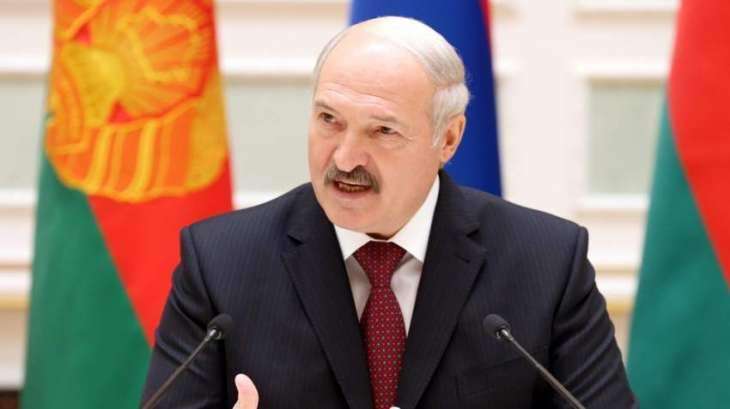For the first time in over 25 years of his almost indisputable leadership, Belarusian President Alexander Lukashenko faces a tough time in the upcoming presidential election as the public support for his candidacy has significantly declined, while the country suffers from deep economic problems, which may cast a shadow over his possible sixth presidential term, experts told Sputnik
MOSCOW (Pakistan Point News / Sputnik - 03rd July, 2020) For the first time in over 25 years of his almost indisputable leadership, Belarusian President Alexander Lukashenko faces a tough time in the upcoming presidential election as the public support for his candidacy has significantly declined, while the country suffers from deep economic problems, which may cast a shadow over his possible sixth presidential term, experts told Sputnik.
The vote scheduled for August has galvanized Belarusian citizens behind different candidates and prompted disparate demonstrations in the country throughout June. Lukashenko has criticized the movements as misguided while authorities arrested two popular opposition figures who are aspiring candidates: popular blogger Syarhey Tsikhanouski and former head of Belgazprombank Viktor Babariko, both enjoying considerable support from the opposition.
Earlier this week, the Belarusian Election Commission said that Lukashenko and five other presidential hopefuls had collected enough signatures to get registered as candidates. Among them is Svyatlana Tsikhanouskaya, who is running instead of her detained husband, and Babariko. At the same time, the commission has declined the candidacy of former Belarusian Ambassador to US Valery Tsepkalo citing unverified signatures.
EVEN IF RE-ELECTED, LUKASHENKO HAS TO DEAL WITH WIDESPREAD PUBLIC DISCONTENT
Despite the opposition emerging stronger than ever before, Lukashenko is still the most likely candidate to win the race, but his next presidential term might be plagued by continuing nation-wide protests, Mark Sleboda, an international relations and security analyst, told Sputnik.
"While Belarus does not yet have the level of organized foreign-backed liberal-nationalist protest groups as the Maidan Putsch did in Ukraine, which had just under 50 percent of the Ukrainian populace polling as supporting it, there is no doubt that if Lukashenko is declared the winner of the presidential election again, that there will be significant street protests against him and that those protests will likely be met by police force. Whether or not they can achieve a critical mass and if so, who they will galvanize politically around, will be determined by just how much discontent there is against Lukashenko's continued rule," Sleboda said.
Galia Ackerman, French-Russian historian and a researcher at the University of Caen, also thinks that the incumbent Belarusian president has strong chances of being re-elected, "without any problems - even without falsifications."
The Belarusian opposition is still weak and highly fragmented, which significantly reduces chances for a victory, the expert noted.
"In Belarus, from time to time opposition figures emerge, and precisely, since there is no structured opposition, every new figure could channel the expectations of a part of the population, which is minor. This is the issue of Belarus: every new figure enjoys support for some time. This doesn't mean that this will not deflate during the elections," Ackerman told Sputnik.
LUKASHENKO MAY FALL VICTIM OF HIS OWN GEOPOLITICAL GAMES
It is not only domestic problems that are casting a shadow over Lukashenko's political future. The long-time Belarusian leader may find himself isolated both by Russia, a historic ally, and by the West due to his volatile foreign policy. In recent months, the relations between Moscow and Minsk proved to be strained over gas transportation, while Lukashenko's ties with the West are overshadowed by his crackdown on opposition, which have already elicited concern of the Western countries.
The president has also been accusing both Russia and the West of meddling in the election, but has not provided any evidence. Kremlin, at the same time, has denied any attempts at interference.
"Even if Lukashenko does manage to eke out a win again and retain control, he will find himself the leader of a country facing serious political division and economic crisis, with no foreign state allies or even sympathizers in sight. In this case, doubtless the Kremlin will once again grit their teeth and grudgingly deal with him, but without the economic or political support he has enjoyed for the first 26 years as the president of Belarus," Sleboda concluded.




